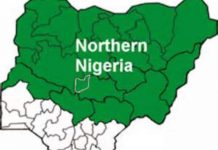Nigeria’s former education minister Obiageli Ezekwesili has said the Central Bank of Nigeria’s foreign exchange policy on milk importation is dangerous to the poor.
“Child Poverty is even worst in a country that holds the ignoble record of being the World’s Capital of Extremely Poor People, our @NGRPresident @MBuhari should be fleeing from Policies that ESCALATE Poverty,” Ezekwesili said on Twitter on Friday.
“The @cenbank #MilkBanPolicy is DANGEROUS. Dangerous for the Poor,” she added.
CBN might have added milk and other dairy products to items on the foreign exchange restriction list with a view to boosting local production, and investment in ranches.
Sources told The Guardian that CBN Governor Godwin Emefiele expressly told operators that milk and other dairy products would be restricted from access to foreign exchange both at the official and parallel markets if they refuse to invest in ranches, a move he said would quell the ongoing farmers-herders crisis.
While ranching has become a controversial issue, especially with the Federal Government’s proposed Rural Grazing Area policy, the bank’s approach could intensify the struggle for land between herders and farmers. OperatorCBN’s forex policy s might also see the CBN as foisting the policy on them without recourse to an existing business model and the socio-ethnic concerns milk and meat may incite.
Ezekwesili, however, said the policy might be borne out of the vindictiveness over the rejection of Ruga settlement by Nigerians.
“Nothing more perverse of Political Leaders and Policy Makers as Policies was borne out of Vindictiveness,” Ezekwesili said.
“It appears from what the @cenbank said on the #MilkBanPolicy that it is a case of: “You folks rejected RUGA, here is your punishment, What a BIG SHAME that would be,” Ezekwesili added.
She said if the Nigerian government persist and move ahead with the policy it will only drop more millions of Nigerians into Poverty.
Ezekwesili maintained that the people who are vulnerable to the effects of this policy are the lower class because the ban will lead to scarcity of milk products which will be out of reach of the poor
“Do you think any middle to upper-income Nigerian will be personally worried about #MilkBanPolicy? Not one bit.”
“When the milk ban policy happens, to avoid Scarcity which Prices Milk up and out of the reach of the Poor, Nigeria needs to immediately TRIPLE current Production of Milk,” she added.
The Nigerian government suspended the controversial Rural Grazing Area settlements for herdsmen on July 3. The Ruga initiative drew the ire and condemnation of some state governors who insisted there is no land for ranches and cattle colonies in their state.
The former Minister of Agriculture and Rural Development, Audu Ogbeh, said that milk worth $1.2 billion was being imported into the country yearly and that the yearly national dairy output and demand were estimated at 700,000 metric tonnes and 1,300 metric tonnes, leaving a supply gap of about 600,000 metric tonnes.
He explained that an average cow in the country produces less that one litre of milk per day, compared to other climes where a cow could produce 100 litres per day and that moving cows from place to place is a major problem affecting the animals and milk production in Nigeria.







